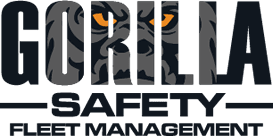
Coronavirus has had an immediate and obvious impact on the entire world. Schools and businesses have closed. People are staying home to keep from getting sick or spreading the virus. Hospitals are working at or beyond capacity.
The trucking industry has not escaped the impact of COVID-19.
HOS Regulation Change
The biggest impact on fleets around the U.S. may be the FMCSA’s March 13 emergency declaration that allows drivers hauling necessary goods to forgo HOS regulations. While supplies are available to ship, fleets can work longer to get them where they’re needed. Remember, though, after a transport, drivers are required to rest eight hours for passenger transport and 10 hours for goods transport.
Amazon Prioritizes COVID-19 Shipments
One the main suppliers of household goods and necessary supplies to the general public is Amazon, and they’re doing their part to make sure they have products customers want to buy. As of March 17, Amazon announced their fulfillment centers’ priority would turn to household goods and medical supplies. Expect to see extra shipments being sent to Amazon locations around the US. Specific goods outlined by Amazon include baby products, health and household, beauty and personal care, groceries, industrial and scientific, and pet supplies.
Spikes in Shipment Across the Board
While the supply chain remains strong and factories and manufacturers are able to fulfill demand, expect a spike in shipment requests and orders. Fleet managers will have to adjust capacity and schedules to meet the demand and transport needed goods. With the HOS regulation change, this may be easier than before, but fleets will need to be on their game, using technology and communication to keep up.
Driver Health and Safety
Don’t be fooled into thinking drivers, who spend countless hours in their cab, are fully safe from COVID-19. Drivers come into contact with plenty of people either at shipping or receiving terminals, inspections, or while trying to eat or buy necessities. Fleets need to educate drivers on how to protect themselves — reminding them to wash their hands and use hand sanitizer, avoid excess contact with groups, and personal hygiene practices recommended by the CDC. Fleets should take advantage of available technology to communicate with drivers to reduce the need for face-to-face contact, as well.
Problems at Ports
Ports are beginning to face issues that could have widespread consequences. Imports from China and other countries are down as the rest of the world battles COVID-19. Fleets are increasingly unable to return empty containers to ports as they’re full to capacity because sailings are down. This may not impact all fleets but should be a concern in the short-term — especially fleets charged per diem for keeping an empty container beyond a certain timeframe. Also, this may be indicative of supply chain problems on the horizon as fewer imports are coming in from overseas which may have a ripple effect on fleets and drivers in the future.
If you don’t have the technology you need to communicate with and manage your fleet, Gorilla Safety can help. In a time when communication and access are more important than ever, make sure you have the tools to help your fleet succeed. Sign up today to get started.

